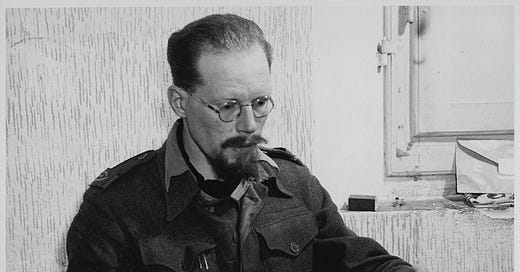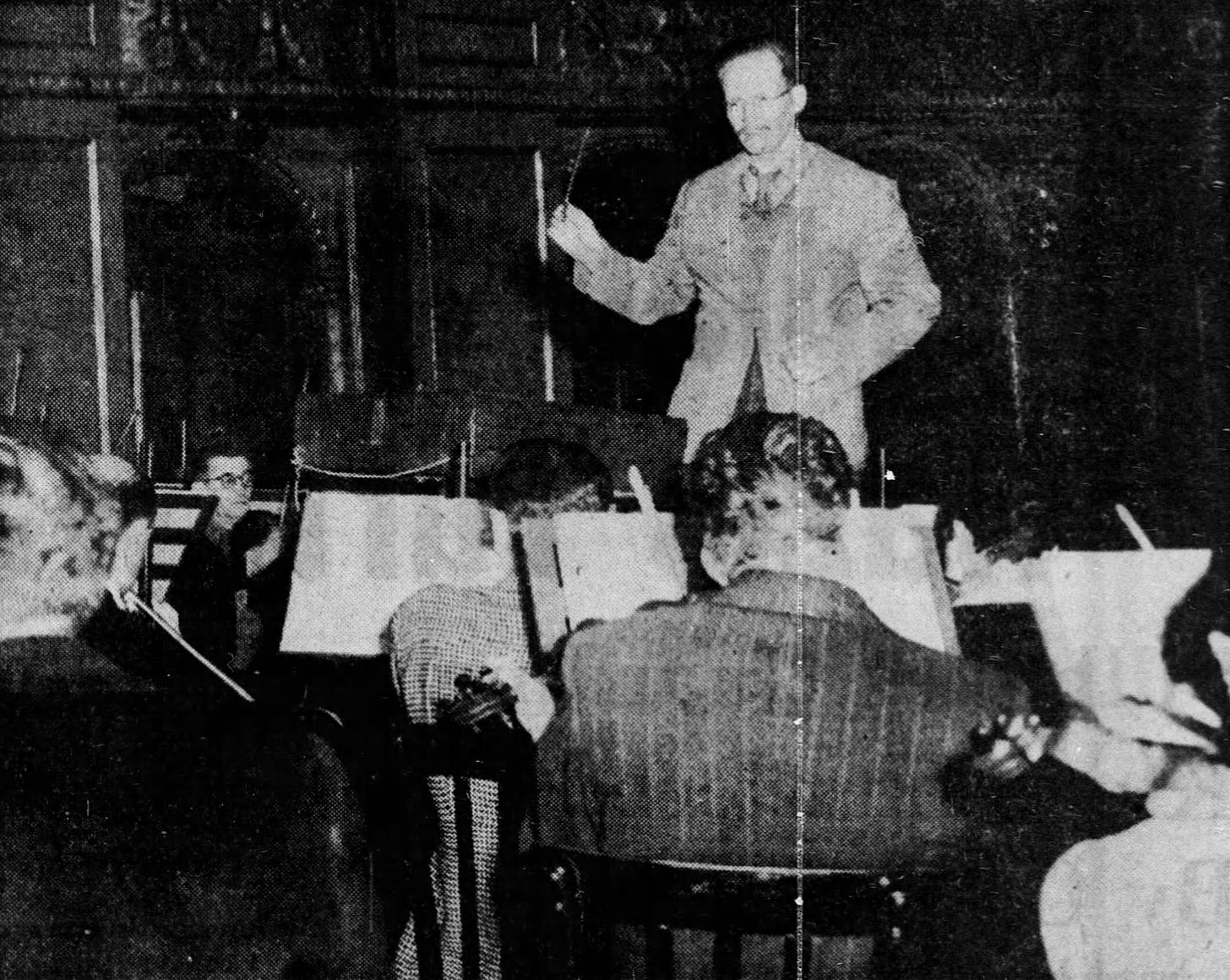Bill Boss, the conducting correspondent
On Jan. 27, 1945, Gerard William Ramaut Boss stepped onto the stage at Rome’s Royal Opera House, raised his baton, and proceeded to conduct the Royal Symphony Orchestra through Rossini’s The Thieving Magpie and Tchaikovsky’s Fourth Symphony.
Nearly six months later in the Netherlands, Boss would conduct a 70-piece ensemble for two performances at Hilversum’s Grand Theater, one of which was broadcast over the most powerful radio station in Holland. Splitting duties with Dutch conductor and composer Hugo de Groot, Boss would take the baton for Schubert’s Unfinished Symphony, Tchaikovsky’s Marche Slav, and other pieces.
Considering Boss’ background in music, which included founding and leading the Ottawa Concert Orchestra back home in Canada, such assignments were well in his comfort zone. They surely offered a welcome break from the day job he held during the final year of the war in Europe as a correspondent for the Canadian Press.
Bill Boss, as his byline read, was born May 3, 1917 in Kingston, Ontario. His Canadian Press obituary would describe him as “something of a Renaissance man,” a characterization that is difficult to dispute.
In addition to English, he spoke French, Italian, German, Dutch and Russian, plus some Korean and Japanese picked up during his time covering the Korean War. Piano was his primary instrument, but he also played the organ — once getting behind the keys at St. Patrick’s Cathedral in New York — and arranged and composed music, in addition to conducting.
When he was 19, Boss organized the Ottawa Musical Students’ Concert Orchestra — later shortened to Ottawa Concert Orchestra — whose members had to be 19 or younger. In a December 1936 review of an early performance, Ottawa Citizen critic Isabel C. Armstrong called it “inconceivable” that the group could play so well after only a couple of months of rehearsals.
Bill Boss gets his musicians to build up crescendoes and decrease tone evenly, and dramatically if this is desired. The Ottawa Musical Students’ Concert Orchestra has made such a promising beginning that its progress will be watched with interest and a good deal expected from it. Bill Boss has the qualification to make a successful conductor.
Boss remained devoted to music, but he chose journalism as his profession. He moved to Toronto in May 1937 to work for The Times of London, then headed to England in January 1938 as a reporter and editor at the newspaper’s main office for several months. He also did music criticism during that stint.
Boss joined the Canadian Army in 1940, serving in a variety of roles before finding a niche in public relations, which eventually found him accompanying Canadian troops and correspondents in Sicily and Italy. He taught himself Italian, thereby becoming even more valuable to all as an interpreter, and generally ingratiated himself with everyone.
The Canadian Press wrote a short feature on him in May 1944 that began:
The priests know him, the town doctor knows him, he gets stopped in the streets to engage in frequent chatter with the high and the low. To the Canadians who know him, Lt. “Bill” Boss, army public relations officer from Ottawa, has become known as ‘deputy mayor of Ortona.’
A little over a month later, CP chief Gil Purcell somehow managed to convince the army to turn him loose and join the wire service as a correspondent. Boss would spend the rest of the war in those duties, spending months in 1944-45 covering Canadian troops in the overlooked Italian theater before moving on to the Netherlands near the end of the war.
"It was a terrific break for me," he would say later. "As soon as the appointment was made official and I was free of army red tape, I grew a beard.
"My feeling was that brass hats might be interviewed by umpteen correspondents and never remember one of them. But they couldn't forget a man with a red beard."
Once the hostilities ceased in May 1945, Boss took it upon himself to organize free concerts for Canadian troops in the Netherlands, often paired with performances earlier in the day for Dutch civilians.
Boss really came into his own as a war correspondent in Korea, covering every major Canadian engagement over three years and infuriating military officials and fellow correspondents alike with his disregard for censorship regulations.
Immediately after the war, he opened the first Canadian Press bureau in Moscow. Boss left journalism in 1958 and went into public relations at his alma mater, the University of Ottawa, where he remained until 1982.
Boss, who never married, spent the rest of his life traveling. He died of pneumonia in 2007 at age 90.





